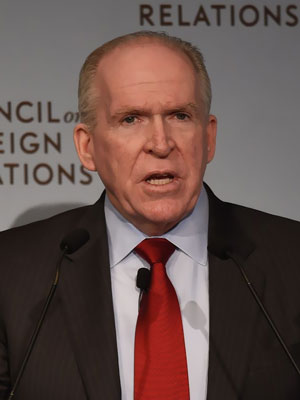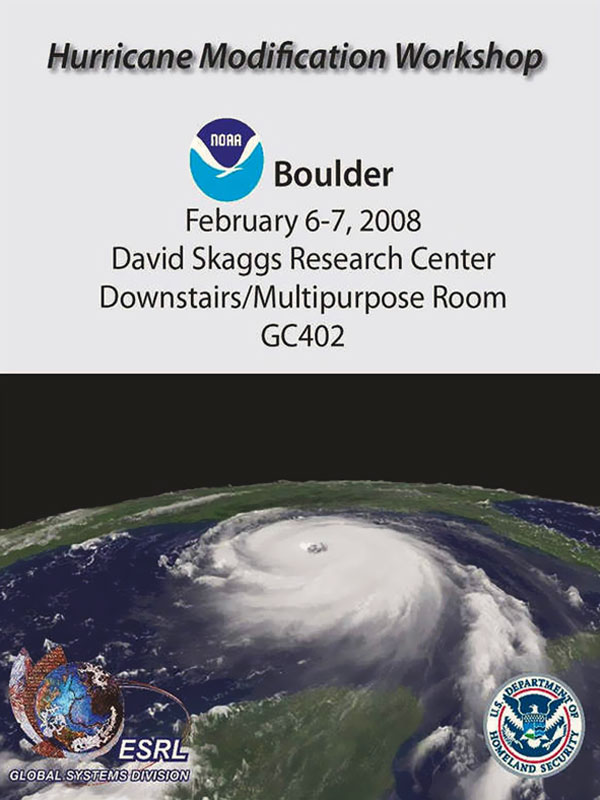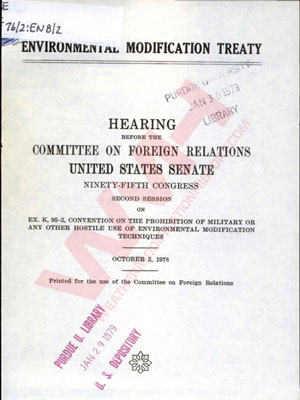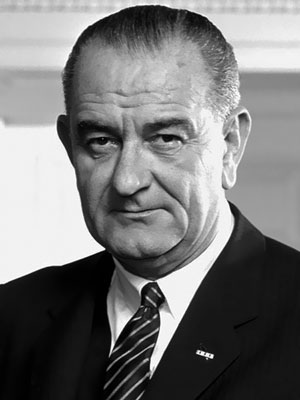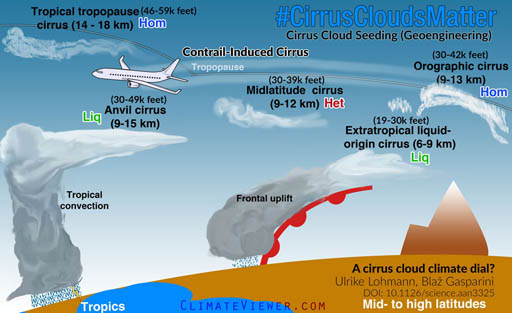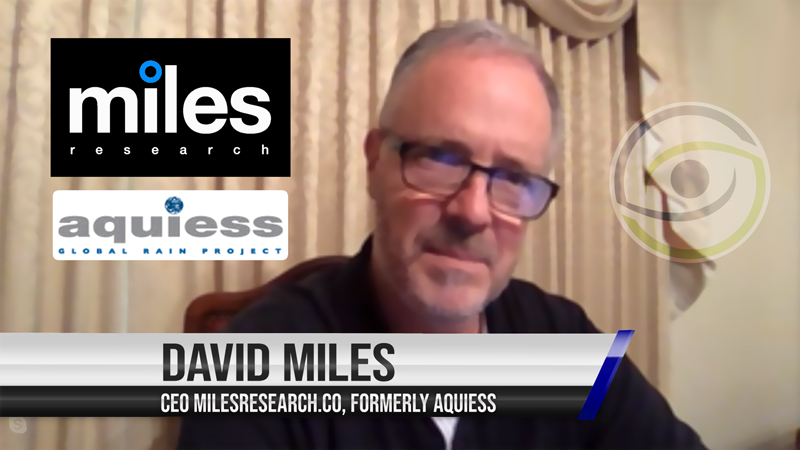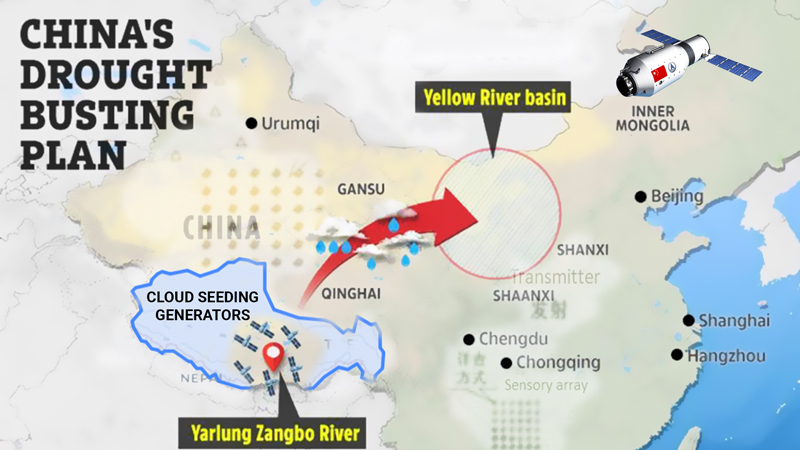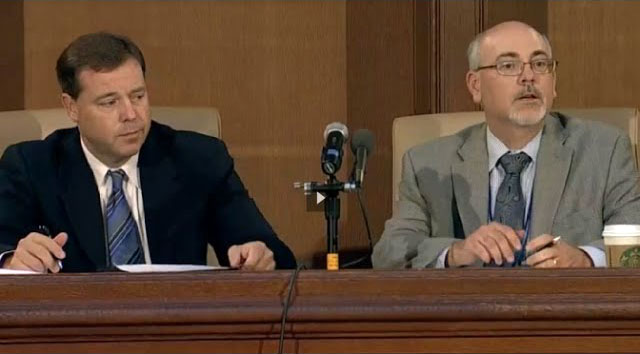
The Canary Islands are home to 300 protected areas, 43 special zones for birds, 11 marine reserves, and are a Special Maritime Protection Zone. Spain is to the Canary Islands as Britain was to Colonial America. The autonomous governments of the Canaries and the local populace, who clearly oppose offshore drilling, cannot stop encroachment by the global oil cartels. The internationally famous waters surrounding these volcanic islands are now being drilled and a passing ships has dumped oil on their beaches. Is nothing left in this world sacred?
Canarian oil prospecting off eastern islands

Update 8 June: Madrid might have refused permission for the Canaries to hold a referendum, but the public manifestations yesterday made it quite clear what the opinion of the majority of Canarians is without the need for any vote. Soundings – political rather than geological – suggest that seven out of ten oppose the plans, and in Tenerife alone, tens of thousands of people gathered in the Avenida de Anaga in Santa Cruz under the Una Sola Voz banner called for by the Canarian government. They were joined by similar protests in all the other islands, everyone clamouring against Madrid’s plans for oil exploration off Fuerteventura and Lanzarote.
Local press is reporting that just before 6pm when the protest was due to start, the capital’s tram service was completely overwhelmed with people carrying banners arriving to take part. Indeed, the protest spilled over from the planned route along Avenida de Anaga into Plaza Weyler, Calle Castillo, and the port and auditorium.It is not oil that will be poured on the troubled waters of Madrid’s plans for drilling in the Canaries if yesterday is anything to go by.
Update 29 May: The environment department has announced today that the way is clear for Repsol to prospect for oil in Canarian waters. The announcement was made in a ministerial representative meeting with the press in Madrid. It had been speculated over recent weeks that Medio Ambiente would put obstacles in Repsol’s way, but in the event, the opposite has been true, and they have been given the green light to seek oil 60km off the coast of the eastern islands. The permiso affects soundings in the concessions denominated by Repsol as Sandía, Chirimoya and Zanahora. Medio Ambiente says that the utmost guarantees are in place to minimise risks. Coincidentally, today also saw the Congreso de los Diputados reject with an absolute majority the possibility of stopping the prospecting. This is now happening.
Update 18 March: Cairn and Genel have announced that they have capped and abandoned the JM-1 well. Although they are saying that more time is needed to analyse and determine the quality of what was discovered, sources from the Oficina Nacional de Hidrocarburos y Minas (ONHYM) in Morocco have already said that the oil reserves discovered in a band some 110 metres thick in Upper Jurassic deposits was not of good quality. It seems that Cairn and Genel will now compare the latest findings with those already made to determine how to direct future investigations.
Update 9 March 2014: Oil drilling in Spanish waters is almost certain to go ahead now, because Genel Energy has confirmed that Cairn Energy’s JM-1 well has located oil in the Upper Jurassic as part of Morocco’s own exploration in the same area. The well is in the Juby Maritime III block shown in the image above. As I posted HERE recently, the Canarian president is demanding a referendum on whether oil prospecting should proceed in Spanish waters off Fuerteventura and Lanzarote, but Madrid has dismissed the claim out of hand. This week’s news that there is indeed oil below those waters make drilling all but inevitable now, I should have thought.

Apart from concerns about oil exploration in an area of regular seismic tremors due to tectonic movement, one wonders what the Canarian government would make of it if it realized that the CEO of Genel Energy is none other than Tony Hayward, the former chief executive of BP at the time of the Deepwater Horizon oil spill in the Gulf of Mexico in 2010. Mr Hayward recently said that Genel had begun a high-impact exploration programme in Africa “targeting over 900 mmboe of prospective resource this year, with the first well underway in Morocco and a further three to follow in Malta and Morocco. Each well has the potential to make a material impact on our already significant reserve and resource base.” Spain will have its eyes firmly fixed on such potential coming from its own side of the international waters line …
Update 18 September 2013: Regardless of whether Spain explores or drills for oil off the eastern Canaries, Morocco is going ahead with exploitation of the parallel oil fields in any case. The scale of the whole thing is shown in the graphic above, taken from the website of Scottish firm Cairn Energy, who will be carrying out the drilling. Given that the Moroccan oil fields border the Canarian ones, if a disaster happens, it won’t much matter whether Spain was actually responsible or not.
It will lend huge impetus to the development lobby in this country given that there seems no reason now not to exploit the Canarian fields and take the money. Chief executive of Cairn Energy, Simon Thompson, said that the Moroccan exploration will be taking place at a depth of between 500 and 2,000 metres, and will be in the areas of the oil field known as Foum Draa and Juby Maritime.

Update 11 June: Rather than oil on the water, it will be fuel on the flames for those who oppose oil exploration off the eastern Canary Islands. A 3.7 earthquake was registered overnight at a depth of some 20 km between Fuerteventura and the African coast, in the area where Repsol has now been given confirmed consent to carry out oil prospecting. There were two aftershocks of 2.4 and 2 on the Richter scale in addition. IGN says that such tremors are normal seismic activity relating to tectonic movement, but that will perhaps hardly reassure those who foresee an oil catastrophe for these islands.

Update 28 January 2013: German company RWE Dea AG, which along with Woodside (Australia) and Repsol is conducting soundings for oil off the eastern Canary islands, has estimated that there is a supply of around 1,390 million barrels in the Aaiun-Tarfaya oil field to the east of Lanzarote and Fuerteventura: the extent and scale is clear from the area of the red box in the above image. The report says that the field can be considered as a northern extension of recent discoveries of oil deposits in Mauritania, Liberia and Sierra Leone from the Tertiary and Cretaceous eras: this dating apparently indicates that the oil will be of a high quality. Exploration, the next stage after prospection, is expected to start in the second half of 2014.
Update 6 June 2012: The Canarian Government has lost two judgements from the Canarian High Court in as many days. On Monday, the Court rejected an appeal to annul the authorization given to Repsol to carry out soundings off the eastern islands, and yesterday it again found against the authorities in their appeal to stop the works proceeding. The High Court not only refused to paralyse the works, but added that the national interest was more important than that of the region. Its judgement ruled that there was no risk to the islands in carrying out the soundings and, moreover, that it could represent a source of wealth for Spain in general.
Update 26 March 2012: Protests have taken place throughout the Canaries against Madrid’s approval for oil exploration off the eastern Canary Islands. The numbers are disputed, as protest statistics always are, with President Rivero claiming an excellent turnout, but police saying far fewer. In Tenerife, some 1,000 gathered outside national government offices, but there were far more who took to the streets in Fuerteventura and Lanzarote. There, organizers say 35,000 gathered to protest, though police put the number at 12,000.
The meaninglessness of the given numbers is shown by the Gran Canaria protest, where organizers said 15,000 people turned out in Las Palmas but where the official number was given as 1,500. To a very large extent, these figures are politically massaged and motivated … rather like the protests themselves … and if anything will stop the drilling, it will be the Canarian Government’s legal proceedings against Madrid, which will have to succeed if Repsol is to be prevented from starting work as authorized by royal decree.
Update 23 March 2012: The Canarian government has initiated legal proceedings against the Royal Decree of 16.3.2012 which grants permission for oil prospecting. Several free bus services will be organized to take people to a demonstration.
The local press, meanwhile, is thoroughly enjoying the “hypocritical stance” of the regional Government and, particularly, the Canarian president, Paulino Rivero. He who is leading the fight against the prospections was the one to reclassify the environmental catalogue to force the sebadal grasses off it, and so allow the works on the Granadilla megaport to continue. One cartoon the other day showed him borrowing a megaport protestor’s placard to go and protest about the oil.
Update 21 March 2012: And the authorisation has come far earlier than expected with publication in today’s BOE (Boletín Oficial del Estado). Repsol has now been given official permission to carry out oil prospecting in the sea between Lanzarote and Morocco. This official announcement has been coming for a few days and has resulted in great consternation in the Canarian Government, with President Rivero saying he’ll fight this tooth and nail.
Suspicions are rife, too, that this has been rushed through by Madrid in order to preempt any legal measures the Canaries could initiate to stop the prospecting before it had started. The Canarian President, backed inevitably by green groups and political parties of other hues as well as Greenpeace, says it will have an adverse effect on tourism and that any oil spill would spell the end for the Canaries. This is going to run and run …
Original post 2 February 2012: The minister for Industria, Energía y Turismo, José Manuel Soria, has announced that authorisation for Repsol to start oil prospecting between Lanzarote and the Moroccan coast is imminent. Sr Soria said that this phase involves establishing for certain that crude oil deposits exist, a necessary first phase prior to any plans for extraction or exploitation.
The minister said that although there is no empirical evidence as yet, all the signs are that there is a lot of crude oil, and of good quality. It seems that Morocco is already carrying out its own research in the same region in its own maritime area.
This is not the first time that Spain has been on the verge of authorising prospecting off the eastern islands, but previous plans have foundered for a variety of reasons, including environmental concerns. Sr Soria said, however, that Spain could no longer allow itself the luxury of not authorising such explorations, and that the Canaries would logically benefit from any discovery of such deposits, assuming that a further decision was made to extract them.
source: http://www.janetanscombe.com/news/authorisation-imminent-for-oil-prospecting-off-eastern-islands.html
Canary Islands vs. Big Oil
Three of the seven volcanic isles are world heritage sites, maintaining unique ecosystems, conservation land and a home for abundant sea life. They may also provide Europe with a renewable energy role model, stepping stones metaphorically to a sustainable future, as the archipelago aims for total self-sufficiency in 2025.
But in March 2012, the Spanish government approved prospects for oil exploration off the islands of Lanzarote and Fuerteventura, both of which are UNESCO biosphere reserves, describing the project as a potential solution to the country’s 26 billion euro deficit. If predictions are correct, it could be the biggest oil find in Spanish history.
Thousands of Canary Islands residents and activists have begun campaigning against Spanish oil company Repsol, and the potential oil spill that could devastate the wildlife and tourist and fishing industries. Local campaigners have demonstrated on all major islands and taken to the streets of Madrid in order to stop the drilling.
As an “Autonomous Community,” the Canaries are politically part of Spain but divided into two autonomous provinces of Tenerife and Las Palmas. They have their own government, parliament and administration and recognized as having their own “nationality” by the Spanish people.
As one of Spain’s most attractive holiday destinations, hundreds of thousands of livelihoods would be put at risk from pollution. Drilling will be deep, up to 6,000 meters, with wells within 18 miles of Lanzarote and Fuerteventura. An investigation by environmentalists will research the impact on ocean life where over 50,000 plant and animal species have been identified.
Both islands have little rainfall so there’s a possibility of sea contamination, as islanders’ drinking water is supplied by desalinated sea water. Trade winds would further the potential spillage area. Concern that deep sea drilling causes earth tremors, for many, just adds to the feeling that drilling doesn’t make sense. These are volcanic islands and naturally prone to seismic activity.
But the unveiling of the new reform of the Spanish electrical system in July, 2013 has swept further disharmony over the islands. Its 3.5 billion euro cut in the renewable energy sector each year raises eyebrows over Spain’s longterm conviction to ecological development.
A new tax on solar panels has been introduced charging high fees for grid use so that it is effectively no longer economical for households to generate their own energy. The new law has been criticized by the Spanish National Energy Commission and provoked national anger, but anyone refusing to connect to the grid could face fines of up to 30 million euros.
Sustainability Under Siege
Rumors of civil unrest are circulating along with doubts that Spain will now reach the EU´s 2020 renewable energy goal. But while the world awaits the outcome, one that affects the whole mechanism of alternative energy production, it may just have set the precedent for other nations to claim the sun.It’s sad news for El Hierro, the smallest isle expected to become one of the first in the world using 100% renewable energy. The hybrid hydro-wind plant has received international recognition for pioneering technology and its Zero Waste scheme. If it’s successful in utilizing natural resources of wind, sea and even volcanic craters, it could be a breakthrough for other isolated communities.
The Sustainability Plan was approved over 16 years ago but stems back to the sixties and took years of conviction to realize. New local jobs, a boost in tourism as El Hierro becomes a center for scientific research, along with profits that will be reinvested into the community, are part of the project’s development.
With over 30% unemployment and a history of drought and emigration, sustainability could spell a new era for islanders. Perhaps it’s time the island’s luck changed, as volcanic activity left it abandoned in 2011. But estimates of saving over 1.8 billion euros a year, as well as 6,000 tons of diesel and 18,700 tons of CO2, have been iced as local owners and developers find themselves battling over rights and tariffs, under governmental review.
It’s not the first time that the Canaries have held off the oil exploration. Repsol´s first proposal in 2001 was refused three years later after claims of “deficient environmental controls.” Public opinion hasn’t changed and controversy has followed over pollution risks and the income drilling would generate through a forecast 20-year lifespan.
Three to five thousand new jobs have been cited, a claim that’s disputed as the work will require highly trained specialists. A recent Environmental Impact Study was made unavailable to the two islands it directly affected. Yet if the oil exploration is successful, it could reduce Spain’s fuel imports by 10%, 7.5 billion euros will be invested into the Canaries, and the oil fields could produce up to 150,000 barrels of oil a day.
Explorations are due to start in 2014, to determine the boundaries of mining area, which is within 30 miles of Moroccan shores. In yet another area of contention, Morocco has warned of a border violation and already began its own survey.
The deal is tempting, however, in these genuinely hard times. The global crisis that struck Spain’s housing market five years ago dive-bombed into the loss of thousands of jobs and a major recession. Now 5.9 million Spanish people are unemployed, the highest figure since the 1930s, with 55% of young people aged 16-24 out of work.
An estimated 350,000 families have been evicted since 2008; some now squat in empty buildings or live on the streets. For the first time ever, Red Cross has asked for donations to help the Spanish population. A brief respite of social justice came from firemen refusing to carry out the eviction of an 85-year-old woman from her home.
According to the charity Cáritas, over 30% of the Canary population is now under the poverty line. The islands have the third highest unemployment rate in the European Union, with 62% of the youth unemployed. Lack of opportunities will force many islanders, like their peers in the mainland, to leave home to find work in other countries.
Yet the local population is united in keeping oil drilling out, and gaining international support from organizations such as Greenpeace, Friends of the Earth and World Wildlife Fund in defense of more than 300 protected areas, 43 special zones for birds and 11 marine reserves that are visited by whales, dolphins and turtles. As an important study area for educators in marine science and universities of oceanography, these resources are also backed by a number of academic institutions.
The islands´ stand for a future that respects its environment and social, economic and cultural development should be praised; it’s a gift for others. Now as local movements start up and flyers are handed out to tourists on the beaches, the numbers of protesters are slowly growing.
But the opponent that islanders face over the next few years is a tale of David and Goliath, and time is running low. People need an economy, a roof over their heads and food on the table, but is there an alternative other than destroying the planet? As earth’s resources deplete and oil companies are forced to mine in new remote places, these two islands could be any number in the world — any parallel community facing the crisis of sustainability and survival.
Fears of oil spills and drilling grip residents of Canary Islands
More than 1,100 tankers have passed through the tourism-dependent area so far this year
by MARÍA SOSA TROYA Las Palmas de Gran Canaria 16 Dec 2013 - 14:40 CETRegardless of whether Spanish energy giant Repsol decides to press ahead with its plans to develop the offshore fields close to Lanzarote and Fuerteventura, oil is now a reality in the Canary Islands. So far this year, more than 1,100 oil tankers have passed through the area, according to local maritime authorities. Many other, smaller vessels carrying hydrocarbons also navigate these Atlantic waters. In 2012, over 12 million tons of hydrocarbons passed through the archipelago, according to the Canary Islands Statistics Institute. Environmentalists and many local residents are angry about the increased traffic, and, fearing a spill, are organizing campaigns, as well as calling on the government to prepare contingency plans should a vessel be involved in an accident.
The Canary Islands was declared a Special Maritime Protection Zone by the UN's International Maritime Organization in 2005. This means that there are only two routes for vessels carrying dangerous cargoes through the islands. Such vessels must also inform the authorities about what they are carrying, where they have come from, and where they are heading. "This measure has been an improvement, but we need to do more. The area's marine life must be protected," says Beatriz Ayala of the Lanzarote branch of the World Wildlife Fund. Six of the seven islands are biosphere reserves.
If the Spanish government gives Repsol the green light to begin drilling for oil, the company will carry out two exploratory surveys around 60 kilometers off the coast of Lanzarote and Fuerteventura, starting in May 2014. One of the main criticisms from opponents to the planned drilling is the absence of any contingency plan in the environmental impact report the company has prepared. Sources at Repsol say they are working on a plan, but do not know when it will be ready, but insist that an accident is "almost impossible." But they do admit that between 2006 and 2010 Repsol was responsible for more than 6,900 "incidents" worldwide involving not just exploration and drilling, but also land transport of crude oil.
The regional government of the Canary Islands is opposed to offshore drilling in the area, and is instead promoting its ports as a hub between Africa, the Americas and Europe. According to sources at the port in Las Palmas, in Gran Canaria, the islands receive ships from all over the world, the majority of them from Brazil and Equatorial Guinea.
"Around three or four oil rigs also come here each year, leaving between 800,000 and one million euros a day," says José Juan Socas, vice president of Fedeport, the port's business federation.
"There is no contradiction in rejecting exploration and promoting ourselves as a base for the global oil transport industry. We are not going to turn our backs on such an important industry," says regional deputy Fernando Ríos Rull of the Canaries Coalition.
Ríos Rull says it is the central government's job to provide contingency plans for how to deal with a potential oil spill. Sources at the Public Works Ministry say there are 13 vessels, along with a plane and two helicopters, based on Tenerife to deal with any accident involving an oil tanker. The ministry adds that Spain is part of a European rapid-response program to deal with spills. Ríos Rull argues that the Canary Islands has plans to deal with an emergency. "We are working on this, because if there is going to be drilling, then we need to be prepared. We will be discreet about it," he adds.
As well as vice president of Fedeport, Socas is also the head of the company that, among other things, is tasked with environment safety at Las Palmas port. He is critical of the regional government: "It should be carrying out emergency drills each year; its staff need to be trained." Jesús Cisneros, a physics lecturer at the University of Gran Canaria (ULPGC), and an expert in marine pollution, says not enough is being done to protect the archipelago's waters. He has analyzed Repsol's environmental impact study, and says the chance of a blowout is much greater than the company's estimate of one in 50,000, accusing it of basing its risk assessment on faulty methodology. "It is essential to install a detection system using buoys that automatically warn of a spill," he adds.
One of the main concerns about trying to control a spill in the archipelago is the currents, which would wash oil ashore not only on Lanzarote and Fuerteventura, but would also carry it to the rest of the islands. "There are a great many currents that converge on the islands. One of them begins on the African coast and then cuts through the eastern islands toward the south of Gran Canaria where it meets several others," says Alonso Hernández, the director of the Institute of Oceanography and Climate Change at ULPGC. "This is the dominant direction, but currents change, and there is a great deal of variability, which creates huge eddies," he adds.
A spill's behavior depends in large part on how deep under the water it is. If it is on the surface, it will be moved around by the wind. But if it takes place at significant depths — Repsol expects to be producing at between 800 and 1,000 meters — then it will be dependent on the ocean's currents.
Scientists say the Canary Islands are not only at risk from oil exploration and drilling in Spanish waters. "It's not just about deciding whether we want oil drilling in the Canary Islands, but about readying ourselves for a catastrophe that could take place somewhere else," says José Mangas, professor of geology at ULPGC. "A spill off the Moroccan coast could cause serious damage to the Canary Islands' ecosystem. We have to be prepared for this kind of eventuality," he says.

Opposition to exploration mounts
M. S. T.
In Arrecife, the capital of Lanzarote, few people seem to support Repsol's plans to begin exploring for oil 60 kilometers offshore. Ask just about anybody, and the answer is "no," with many politicians, NGOs, environmentalists, and civic associations all rejecting the idea. To give their opposition greater weight, a commission has been set up to persuade the regional government to begin moving toward a sustainable energy model based on renewables. They say the environmental impact of oil production on the islands' rich and varied marine life will be catastrophic. In the event of any kind of spill or accident, the islands' tourism sector, which contributes almost a third of GDP, will be negatively affected. What's more, the Canary Islands depend on desalinated seawater. Then there is the question of just who is going to benefit from oil production, and most people say that it will be Repsol, not them. In short, the people of the Canary Islands are united in their opposition to oil development, and are determined to make sure that it doesn't go ahead.
The decree that the government in Madrid pushed through Congress authorizing Repsol to begin the process of exploring for oil has been challenged by seven institutions - among them the regional government Socialist Party-led coalition, and the local councils of Lanzarote and Fuerteventura, which are led by the Canaries Coalition and want the Supreme Court to decide on the matter. The Supreme Court has already rejected Repsol's previous attempt to begin exploration, in 2004. Events are now moving quickly, with opponents rallying support ahead of the May 2014 date that has been set to begin exploration. Repsol has said that if the government in Madrid gives it the go-ahead, it will begin initial drilling then. Ezequiel Navío, the coordinator of the opposition campaign within Lanzarote's local council against the planned prospection, says that he is now looking for support internationally, having garnered 35,000 signatures through the website www.savecanarias.org. Other initiatives are underway.
Enrique Hernández Bento, under secretary at the Industry, Tourism and Energy Ministry, plays down the widespread opposition to the plan.
"There was a big demonstration against drilling in March 2012, but since then, there has been little support," he says. He insists that any drilling will be secure: "Repsol's environmental impact report has to get the Environment Ministry's approval. If it doesn't, then there will be no drilling." Hernández Bento says that if oil is found, Spain could save around 10 percent on its energy bill. Aside from the government, the Canary Islands Business Confederation -- based in Las Palmas de Gran Canaria -- is also backing the proposal. But the business confederations of Fuerteventura, along with hotel owners in Las Palmas, are against it.
source: http://elpais.com/elpais/2013/12/16/inenglish/1387200351_258064.html
Say No to Oil Drilling in the Canary Islands
by Magicseaweed on Friday 4th April, 2014
My name is Janni Hönscheid and I’m a surfer and model born in Germany but raised in the Canary Islands, where I grew up in a house right by the sea. My mum and dad were pro windsurfers back in the day and in travelling the world they came to Fuerteventura, and fell in love with the island’s people, its calm, and the beautiful nature, so they changed their plans and stayed.
The beach was my playground growing up and I first stood on a board when I was eight. And now I actually make a living out of what I love doing the most, not only a living, but everything I am, all my friends, my passion, I even met my boyfriend of five years out in the sea (Tom Lowe). My whole life is built around this coast, and that’s just me.
When I heard that the Spanish government allowed the oil company Repsol to drill for oil in the Canary Islands – and one of the platforms would be only 9km away from Fuerteventura and Lanzarote – I was shocked. Especially given the the process has been as transparent as the oil itself. Everything that means something to me now feels threatened. The Canary Islands are a very important habitat, being home to cold water corals that host an abundance of marine wildlife, and situated in a transit zone of dolphins and whales, which could already get disorientated and die from the noises and disturbances that even a test drilling would cause.
It’s very common for seismic events to occur in this area. Studies (Geohazards Engineering) show that it’s only a question of time until an oil spill will occur.
Repsol tried the same project in 2001, but was stopped in 2004 by the Zapatero government. The Maritime International Organization declared this part of the ocean especially sensitive. If forecasts prove accurate, Repsol will produce 140,000 barrels a day. The profit would benefit private companies (Repsol, Russion Investmentfond Letter One, and Woodside Petroleum Ltd.). Jobs would go to specialized workers brought in by these corporations. The Canary Islands and their residents would be on the losing end.
Repsol themselves say in the environmental assessment that they can’t guarantee 100% safety, but also the drilling goes unusually deep (1500m under sea level plus 5000m under the seafloor), and also it’s very common for seismic events to occur in this area. Studies (Geohazards Engineering) show that it’s only a question of time until an oil spill will occur. And then there’s no way back.
The EU and UNESCO support the initiatives to make the Canaries a model for sustainability: did you know that another Canary Island (El Hierro) sustains itself 100% with renewable energy. Its dynamic approach sees territories as systems that include not only energy, but also water, mobility, food, education, business, etc. El Hierro is set to become the world’s first island to rely on 100% renewable energy. Lanzarote will follow in the next eight years. El Hierro’s combined wind and hydropower system has already reduced its annual energy costs by well over three million euros. El Hierro is closely watched by members of the international community, and plans are in place to replicate its concept elsewhere.
In my eyes that should be the example to follow. Specially here where we could use all the energy around us: wind, sun and sea. I see evolution in the world, technology, everything around us is getting better, faster, greater, shouldn’t we work together with the environment then, isn’t that what evolution is about?
I think the fact that we can protest to this madness and the chance that I get to write some lines about what I feel, are an opportunity, a gift, but more then all it’s a necessity and a responsibility: at least the small part of us human beings can actually speak and defend ourselves, now think about the whole world under water, all these beautiful beings of nature, all the energy, the part of life we can’t even put into words in our silly little minds, we are responsible! We need to stop this insanity now before it’s too late.
Having smashed the 100,000 signatory target, our goal is to add as many signatures as possible against Drilling for Oil in the Canaries before it is mailed off on April 12th. savecanarias.org, please help to save the Canaries, every voice counts, we have the power.
Keep up to date with the campaign here
source: http://magicseaweed.com/news/say-no-to-oil-drilling-in-the-canary-islands/6248/
Oil spill ruins Canary Islands paradise
July 18, 2014 10:33 GMTJust shy above a kilometer of coastline was heavily hit by the oil stain. The affected coastline lies near El Cabron beach on the Gran Canaria island. Canary authorities have already requested help from mainland.
More than 100 divers, municipal workers and hundreds of volunteers joined by personnel with the Spanish Environmental Ministry started the clean up procedure. Guardia Civil members were spotted along the shoreline picking up samples of sand and water.
The origin of the spill is still unclear, but Canary authorities believe a large ship located in international waters between Gran Canaria and Fuerteventura island cleaned out its bilge into the sea.
The environmental incident comes just a month after the Spanish government granted Repsol the permission to explore for oil and natural gas off the coast of Canary Islands.
source: http://beyluxe.com/articles/travel/oil-spill-ruins-canary-islands-paradise






